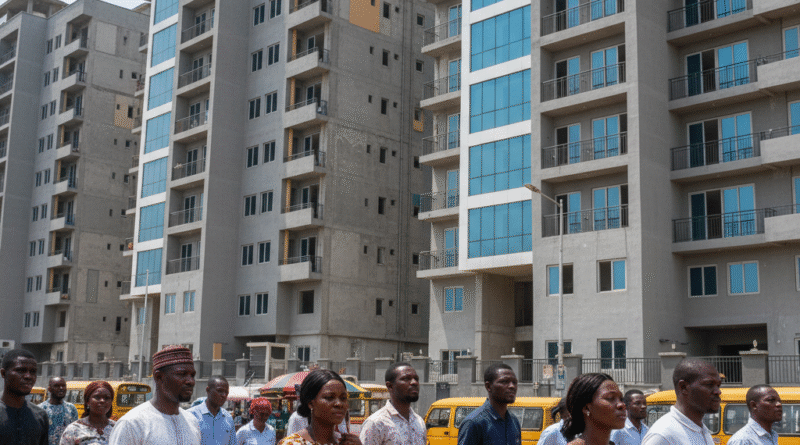Empty Houses, Rising Rents: The Paradox of Lagos Real Estate
In Lagos, the nation’s commercial heartbeat, a quiet paradox is unfolding. Across neighbourhoods, vacant apartments stand with open windows and dusty balconies, yet landlords continue to hike rents. For tenants, the result is painful; more families are squeezed by rising costs, while perfectly good homes remain unoccupied.
The story of rising rent prices in Lagos is not just about the housing market; it is a mirror of inequality, market distortion, and the widening gap between property owners and those simply seeking shelter.
Vacant Homes, Crowded Dreams
Take a drive through Lekki, Surulere, or even the newer estates on the fringes of Ikorodu. Behind gleaming gates lie empty flats, some untouched for months. Yet tenants in nearby streets are told their annual rent has doubled. Analysts say landlords, faced with inflation and rising maintenance costs, are passing the burden to tenants rather than adjusting to the oversupply of housing.
For tenants, this reality has pushed families into smaller apartments, increased the number of shared flats, and even forced some into peri-urban areas where commuting swallows hours of daily life. The ordinary Nigerian in Lagos now faces a cruel irony: homes exist, but affordability is the locked door.
It is here that the tale of housing market distortion in Nigeria becomes visible, not through statistics alone but in the lived experience of teachers, traders, and civil servants trying to keep a roof over their heads.
The Ripple Effects on Real Estate, Economy, and Environment
The consequences of this paradox stretch far beyond individual leases. For the real estate market, an imbalance between supply and affordability creates instability. Developers continue to build luxury apartments targeting high-end tenants, even as mid-income Nigerians form the bulk of demand. Without recalibration, the sector risks deepening vacancy rates while fuelling social frustration.
Economically, the strain of the rental housing crisis in Lagos spills into every household budget. Families spend disproportionate shares of income on rent, leaving less for food, healthcare, and education. Rising rents also discourage small business owners who rely on proximity to markets and customers, as they are pushed further from city centers.
The environmental impact, though less discussed, is equally real. As families move to cheaper outskirts, sprawl increases, traffic worsens, and carbon emissions rise. Vacant estates within the city stand as symbols of inefficiency, while fragile wetlands on the periphery are converted into housing with little regard for climate resilience.
Who Pays the Price?
At the heart of the crisis is the ordinary Lagosian, caught in a cycle of paying more for less. With each rent increment, dreams of ownership slip further away. For many, the answer has been relocation to Ogun State, to family homes, or into overcrowded apartments. But relocation is not a solution; it is survival.
Related News
Nigeria’s Real Estate at a Crossroads: Why Ethics Could Make or Break the Market
Lagos Demolition Sparks Outcry at Trade Fair Complex
Niger Flooding Real Estate Crisis: Lives Lost, Futures Drowned
Conclusion
The paradox of empty homes and soaring rents demands policy attention. Regulation, tax incentives for affordable housing, and mortgage reforms are crucial. Until then, the skyline of Lagos will continue to gleam with towers that few can afford, while the struggle for shelter pushes countless families to the edge of despair.

